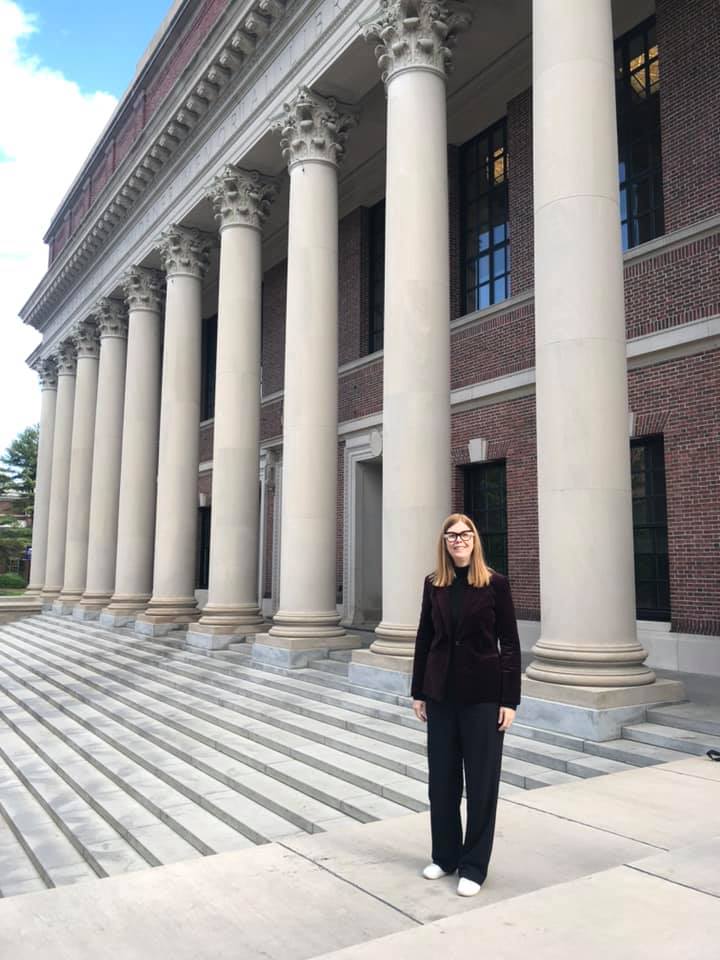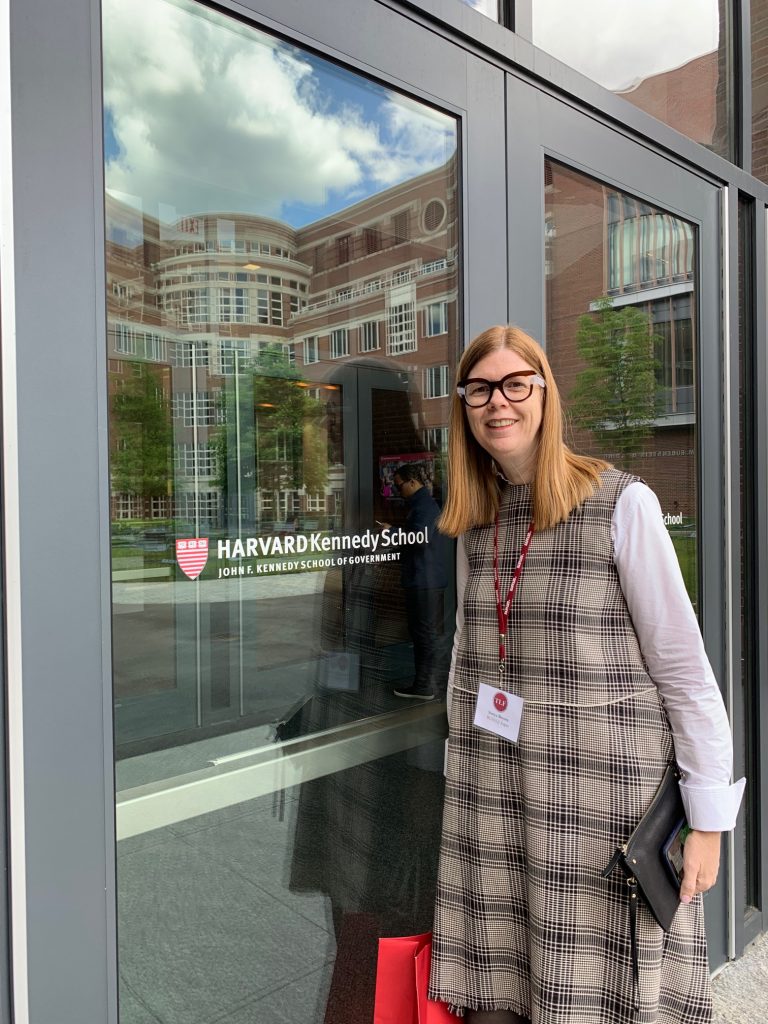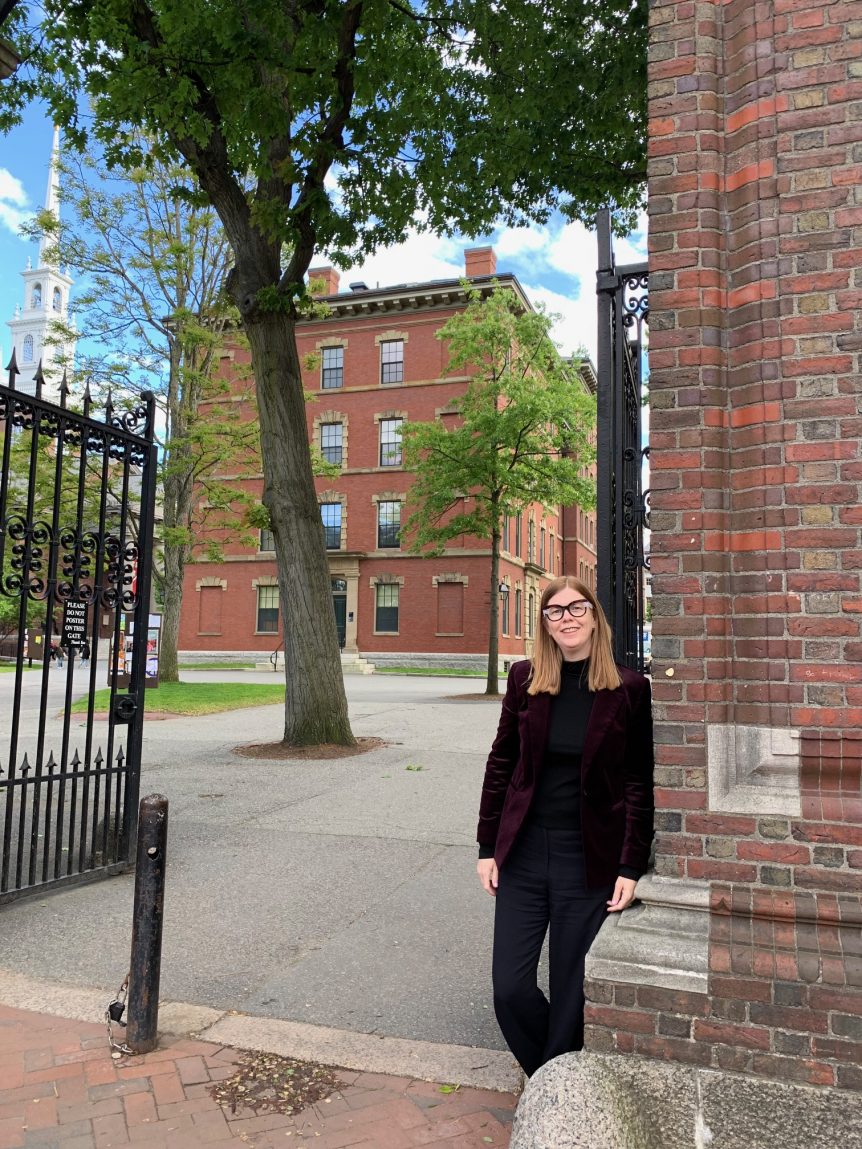On the grounds of Harvard University in Boston, there’s a gate, built in 1890, which as you pass through it on entry, you’re greeted with the inscription:
Enter to Grow In Wisdom
As you walk back through the gate on the way out, a second inscription reads:
Depart to Serve Better Thy Country and Thy Kind
These sentiments summed up the experience of attending the Harvard Trustee Leadership Forum, of which I was privileged to attend recently as part of the inaugural Garry Weaven Emerging Trustee Scholarship I was awarded this year.
There are four recipients of the 12 month scholarship, offered by the Australian Institute of Superannuation Trustees, ACTU and IFM Investors.
The trip to Harvard for the forum was a profound experience, with representatives from some of the largest superannuation and pension funds in the world in attendance, along with an extraordinary calibre of guest speakers.
I most certainly entered the gates to grow in wisdom, and left with knowledge to assist me to serve in my capacity as a director of the BUSSQ Board. I also feel an obligation and opportunity to serve the wider community and share some of the key takeaways of the experience with my fellow directors.
One of the most enlightening parts of the experience for me was that peer-to-peer learning is invaluable. No amount of structured learning replaces the wisdom shared by others who are experiencing the same matters, so with that in mind, I will share the wisdom that was shared with me.

Governance by Design foudning director Sonya Beyers at Harvard University, Boston
The financial services sector is a global system with common challenges
It would be wrong of us here in Australia, in the wake of the Hayne Royal Commission, to assume the issues highlighted here were isolated to our own nation.
The same issues are being discussed at Board tables on the other side of the world even though they operate in a different legislative framework.
Whilst the information shared at Harvard was only in relation to superannuation and pension funds, the comments made around the global system was that they’re all operating within the model developed to manage funds, and that regardless of country they all:
- have investment managers;
- share the same Environmental, Social and Governance (ESG) concerns; and
- look to return benefits to members for the long term and are grappling with the short term reality of how peer to peer and other measures are undertaken in this sector (in Australia’s case on a quarterly basis).
These issues were raised in both peer-to-peer discussions, during thought leader presentations, and from some of the biggest investment managers in the world including State Street, GMO and MFS Investment Management.
These investment managers sat with us and MFS Investment Management even acknowledged that fees were too high and this has to change.
State Street have developed their own ESG system called R-factor which they say they require to measure whether investments are in the best interests of funds. However, they are likely to monetise that and so the question then is to whose benefit has that product been developed?
All acknowledged the issue of short term v long termism issue which I identified as my main area for discussion at the beginning of the forum and as noted above, was a topic of discussion among all trustees represented at the forum.
I should mention the investment managers were not at the forum. The Australian delegate met with them separately with a representative of the Committee on Workers Capital. Trustees representing Australian, Canadian, South African and American funds attended the forum. The biggest funds in the world including CalSTRS were there.
Step Up, Step Back
This was my favourite saying of the week, delivered by Erin Shakelford of the Harvard team.
The idea is to Step Up when it matters, but when something isn’t as important to you, Step Back and let others take control.
It was mentioned at the beginning of the forum for people to think about how they would participate across the sessions and I see it as invaluable to adopt for Board activity.
Not only is it a means to encourage participation of the quieter directors of a Board, but from a personal development aspect, it helps us grow as leaders to develop an insight into knowing what is important to you and how that aligns to your organisation’s purpose.
You can then recognise when you need to step up to be heard, and also recognise matters that may not be as important to you, and therefore step back to let others step up.
It’s about those behind me and those in front of me, not ‘me’
This was about personal ego and the need to understand you are a mere steward of the assets for a limited time.
The organisation continues into perpetuity and there is a need to ensure that short term decisions which may be driven by the personal agenda should not influence an organisation’s long term success.
Directors of any Board need to check their ego at the door and ensure they’re not being influenced by biases or failing to consider the long term future.
It’s about reflecting on and trying to understand why some decisions may have been made and either learning from those or staying true to those decisions. Not undoing them ‘just because’.
When directors get it right, they can see how they have contributed to the long term success, whilst remaining true to the organisation’s purpose.

No institutional investor can influence alone – every investor needs to collaborate
All superannuation funds are institutional investors – we put dollars into the economy on behalf of our members.
As we are all facing the same issues, we should be discussing these and collaborating rather than spending money separately to identify how we can do things better.
Even the largest funds in the world although influential are finding they’re up against private equity and struggling to keep fees under control. This is the case even for funds with $US258 billion funds under management. So, collaboration is needed so that funds together can influence and direct expectations that we have around support offered and the cost at which that support is delivered.
Collaboration is also needed in the industry superannuation sector so we can all better understand the employee and employer expectations, and how we can deliver better outcomes to members including supporting their existing employee entitlements and working conditions.
Keep repeating the same questions – it’s the only way to drive change including shifting culture
Directors should resist ‘taking no for answer’ if they’re unsatisfied with a response.
If you hear an answer and it doesn’t sound right, ask again. Ask differently. Keep asking.
The only way to drive change and potentially influence, including those who are our investment managers, is to keep asking them questions – even if it’s the same question reframed.
So, if you’re not satisfied with their ESG philosophy or how they’re measuring their stocks on ESG performance, ask and ask again.
This advice equally applies to directors on any Board, not just superannuation funds.
The opportunity to learn from and connect with such an experienced and educated group is invaluable and I offer my sincere gratitude to the AIST, ACTU and IFM Investors for this scholarship.
As the scholarship continues over the next 12 months, I look forward to sharing more insights with my colleagues and fellow directors.
Share this Post

